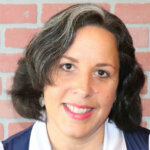While there is a lot of COVID-19 testing going on in the U.S., some Johns Hopkins experts say more detailed testing will give them priceless information in the battle against the coronavirus.
Right now, when a person tests positive for COVID-19, the only information gained is that they have the virus. If a genetic analysis was done, then other key questions could be answered.
For example, how common is the South African variant that has been talked about a lot lately?
“In the U.S., we’re not quite certain how common the South African variant is right now simply because we’re, I think, a little bit still behind the 8-ball in terms of doing genetic sequencing on the viruses that are circulating,” said Dr. Brian Garibaldi, medical director of the Johns Hopkins Biocontainment Unit and an associate professor of medicine.
Garibaldi said that lack of information leaves the country at a disadvantage as questions about COVID-19 and how it’s impacting the U.S. continue to grow.
For example, are the variants more infectious than the original strain in the U.S.?
“We would think that that’s probably true based on the data coming out of the U.K.,” Garibaldi said. “But we don’t have the data on what is happening in the U.S. yet to really know — A) how much is out there right now in terms of these variants and B) if people are having a different experience with COVID illness when they get infected in the U.S.”
Another unknown until more sequencing is done is if the U.S. has its own variant. “I think it’s very likely that there are variants that have originated in the U.S.,” he said.
But, Garibaldi added, only time will tell. “We’re going to learn a lot more in the coming weeks as there’s been a focus on trying to ramp up testing for the genomic variants.”
It is also not clear how many people in the U.S. are currently sick with a variant.
“We only know about the variants in the areas where we’ve been doing lots of sequencing,” said Garibaldi. “There are likely other variants that are out there and we need to have a better system in place to have surveillance and understand what’s happening. Not just with the South African, but variants we may not even know about yet.”
Dr. Bill Moss, executive director of the International Vaccine Access Center, said he is also hopeful more detailed testing will happen quickly.
“This past week, I think it was, the CDC announced that they are going to be scaling up genomic sequencing, going from about 7,000 sequences to about 25,000 sequences a week,” Moss said.
Though he also lamented that it would still be far behind where the U.S. needs to be. “For example, what the U.K. is doing — where they’re sequencing about 10% of all their cases, so more on the surveillance side to understand what we’re dealing with,” Moss said.
The knowledge that would come from the genetic sequencing is not merely to keep track of the variants, but also to see how the strains react to current treatments, and perhaps create more effective treatments for them.
Right now, in lab tests, scientists have found both the Pfizer and Moderna vaccines have offered some protection against the U.K. and South African variants, though those results may not translate beyond the lab.
“The real proof of the efficacy of those vaccines are going to be in the real world, and we’re going to need to be very vigilant in the United States in sequencing more of the viruses, particularly when we see COVID-19 in individuals who are either fully vaccinated or previously had confirmed infections,” Moss said. “Those are going to be critical to see whether we see disproportionate numbers of the variants in those individuals.”
Moss added that knowledge will help scientists see the true level of efficacy of the current vaccines, and also potentially guide them to changing the vaccines for a broader reach in the future.
Currently around 5% of the U.S. has been fully vaccinated.
- Sign up for WTOP alerts
- Latest coronavirus test results in DC, Maryland and Virginia
- Coronavirus vaccine FAQ: What you need to know
- Latest vaccination numbers in DC, Maryland and Virginia
- Virginia launches call center to help with vaccination preregistration
- How DC-area Catholic schools are faring with in-person learning
- Some seniors frustrated with new Md. vaccine appointment call center
- Homeowners, renters in Md. struggling with payments during pandemic
Looking for more information? D.C., Maryland and Virginia are each releasing more data every day. Visit their official sites here: Virginia | Maryland | D.C.








